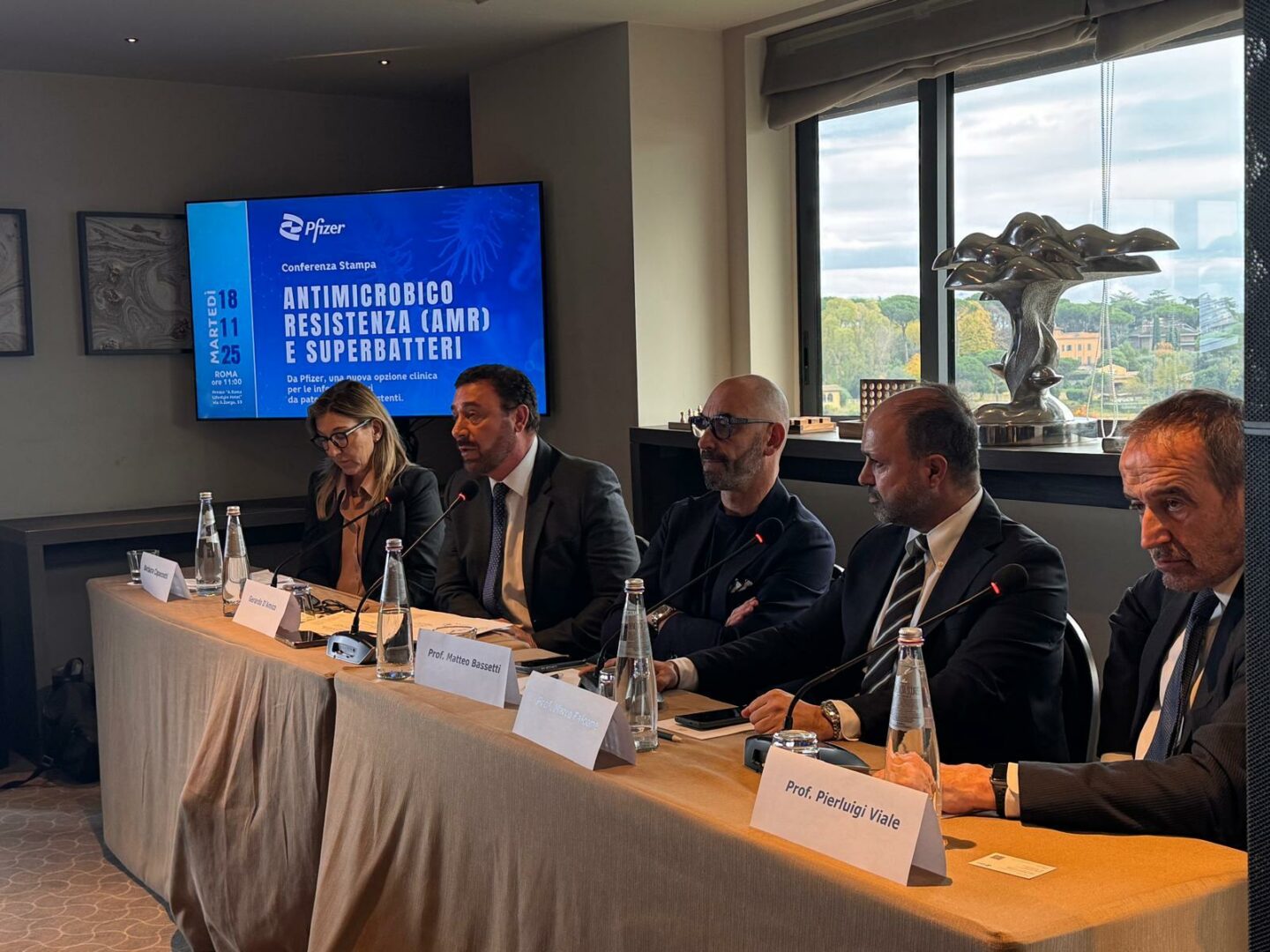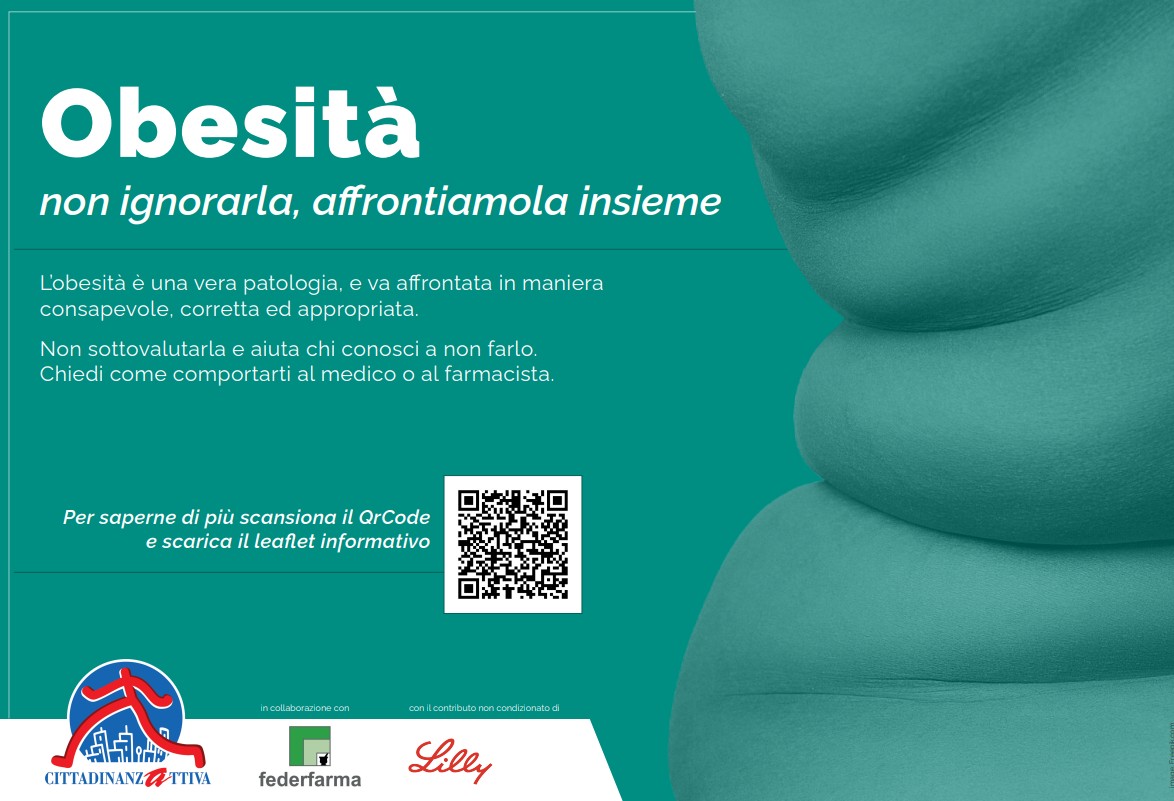ROMA (ITALPRESS) – An infection on six today no longer responds to antibiotics. It is the photograph that emerges from the most recent report of the World Health Organization: between 2018 and 2023, antimicrobial resistance has increased by more than 40%, with peaks in areas with limited resources, and is confirmed, always according to the WHO, among the 10 most relevant threats to public health in 20251. Antimicrobial-resistance (AMR) is one of the most serious and growing health emergencies in the world: Easily cured infections become increasingly difficult to treat, while the spread of superbacteria increases worldwide. A situation that threatens to bring the medicine back decades: surgical interventions, transplants, oncological therapies – routine procedures today – are likely to return to having uncertain outcomes if antibiotics lose effectiveness. On the occasion of the World Antimicrobial Awareness Week 2025 (#WAAW2025), which each year draws international attention to the correct use of antibiotics and the importance of preserving its effectiveness, Pfizer announces the availability in Italy of Emblaveo (aztreonam/avibactam), new antibiotic combination approved and refunded by AIFA (Determinar No. 1130/2025) for the treatment of The combination of aztreonam, antibiotic of the class of monobatams active against the bacteria producers of MBL, and avibactam, a new generation beta-lactamase inhibitor that protects aztreonam from the attack of other enzymes, represents a therapeutic alternative targeted against multiresistent Gram-negative pathogens, including Klebsiella pneum coloniae and Esoscherchiacom infections Thanks to its complementary action mechanism, this new combination offers an effective option for treating serious infections, such as hospital pneumonia, complicated intra-addominal infections and complicated urinary tract infections, even in patients with limited therapeutic options, helping to respond to a still unsatisfied clinical need. The consequences of antimicrobial resistance are increasingly serious and tangible. When bacteria stop responding to drugs, infections become more difficult to treat, healing times stretch and increase the risk of complications, disability and mortality. Globally, it is estimated that 1,27 million deaths per year are attributable to resistant bacterial infections. In Italy, the situation is among the most critical in Europe: antibiotic-resistance is responsible for over 12,000 deaths a year, and almost six infection is today resistant to treatments available. ‘ Antimicrobial resistance is a clinical and organizational challenge – comments Pierluigi Viale – Professor Ordinary Department of Medical Sciences and Surgery Alma Mater Studiorum, University of Bologna, UO Infectious Diseases IRCCS Polyclinic of S. Orsola – Bologna -. Today, an infection on six is resistant to first-line antibiotics, a trend that the WHO calls a growing threat to world health. In particular, infections caused by Gram-negative bacteria, often responsible for serious and/or high management complexity clinical cases. In Italy, in 2023, almost 4,000 cases of carbapenemi-resistant enterobacteria batteries were reported, with an increase in almost all regions. It is an alarm signal that requires more targeted strategies, timely diagnosis and a really appropriate use of antibiotics, to contain the diffusion of multi-resistant strains and preserve the effectiveness of therapies disponibilì. In the face of this data, the answer can only be clinical, as well as preventive: They serve targeted therapeutic strategies and a more conscious use of antibiotics, to contain the spread of multi-resistant strains and preserve the effectiveness of available treatments. ‘ The increase in serious infections is creating a domino effect that progressively reduces the effectiveness of the available therapies – says Matteo Bassetti, Professor of Infectious Diseases University of Genoa; Clinical Director Infectious and Tropical Diseases, Hospital Policlinico San Martino di Genova; Director School of Specialization in Infectious and Tropical Diseases, University of Genoa – and every therapeutic failure increases selective pressure on bacteria, favoring the spread of multi-resistant strains. Also antibiotics considered until recently last line, like carbapenemi, are losing strength, narrowing the healing options. This is why therapeutic appropriateness becomes today an indispensable principle: Choosing the right medication, at the right time and for the right patient is the key to contain resistance and ensure effective treatments in the hardened. Antimicrobial-resistance is a challenge not only clinical, but also economic for the National Health Service. The increase in antibiotic consumption, increased by 5.4% in 2023 according to AIFA data, with an average cost per daily defined dose of 1,77 euro are indicators of an increasing pressure on health resources. Resistant infections involve longer shelters, more complex care and a direct impact on the sustainability of public spending In order to address this emergency structurally, in January 2025 the “Reserve” fund was activated in Italy, an innovative measure that allows to guarantee public and sustainable access to strategic antibiotics against multi-resistant pathogens. Thanks to this mechanism, our country aligns itself with the best European practices, supporting the availability of new therapies such as aztreonam/avibactam and strengthening the commitment in the global fight against AMR.‘ The constant increase of resistant infections, with everything that it carries with it – says Marco Falcone, Professor of Infectious Diseases, Director of the U.O. of Infectious Diseases University Hospitaller Pisana, member of the Board of Directors of the Italian Society of Infectious and Tropical Diseases (SIMIT) – imposes a renewal in the strategies of treatment. In recent decades, very few new antibiotic classes have been introduced, while Gram-negative pathogens have continued to evolve, gradually reducing treatment options. The combination of aztreonam and avibactam arises precisely to overcome specific resistance mechanisms that limit the effectiveness of conventional therapies. International clinical studies have confirmed a favorable effectiveness and safety profile in severe and complicated infections. The drug, moreover, introduces the first ß-lactamic/inhibitor combination of active ß-lattamasis against metal-ß-lactamasis (MBL) and expands the therapeutic options available to clinicians to deal with multi-resistant Gramnegative bacteria infections producers of MBL, a global medical need still unsatisfied. The goal today is to integrate innovation into a vision of targeted and sustainable use, combining early diagnosis, antimicrobial stewardship and continuing training. Only in this way can the new therapies maintain their value over time and contribute concretely to countering antimicrobic resistance. For over 170 years Pfizer has been the protagonist in anti-infective research, with a history made of innovation, collaboration and constant commitment in contrast to infectious diseases. Today the Company continues to be at the forefront of the fight against antimicrobial-resistance, one of the most relevant health emergencies globally, and does so by integrating scientific research, social responsibility and primary prevention. The arrival of Emblaveo® (aztreonam/avibactam) is a new step in this direction, offering a concrete response to a still unsatisfied therapeutic need. ‘ Pfizer’s commitment to antimicrobial-resistance – says Dr. Barbara Capaccetti, Medical Director of Pfizer in Italy – is long-standing and is based on an integrated vision of public health. The development of the new aztreonam-based association and avibactam confirms the desire to continue investing in complex therapeutic areas, where treatment options are increasingly limited. The research of new therapeutic options remains essential, but must proceed together with prevention policies and conscious use of antibiotics. Strengthening early diagnosis, promoting antimicrobial stewardship programs and supporting primary prevention – starting from vaccinations – means acting before the infection manifests itself, protecting patients and preserving the effectiveness of therapies for future generations. This is the direction that guides our work every day. On the occasion of the World Antimicrobial Awareness Week 2025 (#WAAW2025), scheduled from 18 to 24 November, Pfizer launches the awareness campaign “Give your name to change”, which invites citizens, doctors and health professionals to become protagonists of the fight against abuse and misuse of antibiotics. The initiative also responds to increasing public attention towards the AMR. It is a fact that in the last 12 months, in Italy, conversations on social networks related to AMR have increased by 64%, confirming a strong interest in growth towards one of the main global health challenges8 .Diffused on digital channels, social media, pharmacies and hospital contexts, the campaign promotes a culture of prevention, responsibility and awareness. Through multimedia educational content, testimonies of experts and territorial initiatives of information and training, Pfizer intends to strengthen the role of early diagnosis, prescribed appropriateness and vaccinations in the protection from antimicrobial resistance. An initiative that speaks to the general public and the scientific community with a simple and direct language, to remember that everyone can contribute to change: because the effectiveness of today’s antibiotics is tomorrow’s medicine.
– photos GOLIN Italy – (ITALPRESS).






